Sarah Kate Benjamin, Herbal Foods Chef & Cookbook Author, Kosmic Kitchen
Herbal foods chef, herbalist, cookbook author & founder of The Kosmic Kitchen, Sarah Kate Benjamin shares her tips on getting started with herbalism and incorporating it into daily rituals.
Where are you based? Who are the indigenous peoples of this land?
I live in West Sonoma County California on the unceded land of Coast Miwok and Southern Pomo peoples.
Can you share a bit about what ignited your herbalism journey?
Growing up in Florida, my family was always gardening and spending time outdoors. They instilled in me an appreciation for nature which eventually led to getting a degree in Environmental Studies.
While at school, I was lucky to have an opportunity to help start a community garden on campus where we grew vegetables and medicinal herbs. I studied with an herbalist there and quickly became enthralled with how to use herbs and work with them medicinally.
At this same time, I was struggling with what was eventually diagnosed as chronic fatigue syndrome and turned to the plants for healing. Thankfully, I was able to work with my mentor and herbal teacher, Emily Ruff, who encouraged me to infuse restorative herbs into my meals for deeper nourishment and support. I always struggled with taking tinctures and capsules so eating my herbs felt so aligned and helped to nurture my love for cooking. Herbal foods completely changed the way I approached eating and became a powerful tool for healing and learning how to take care of myself.
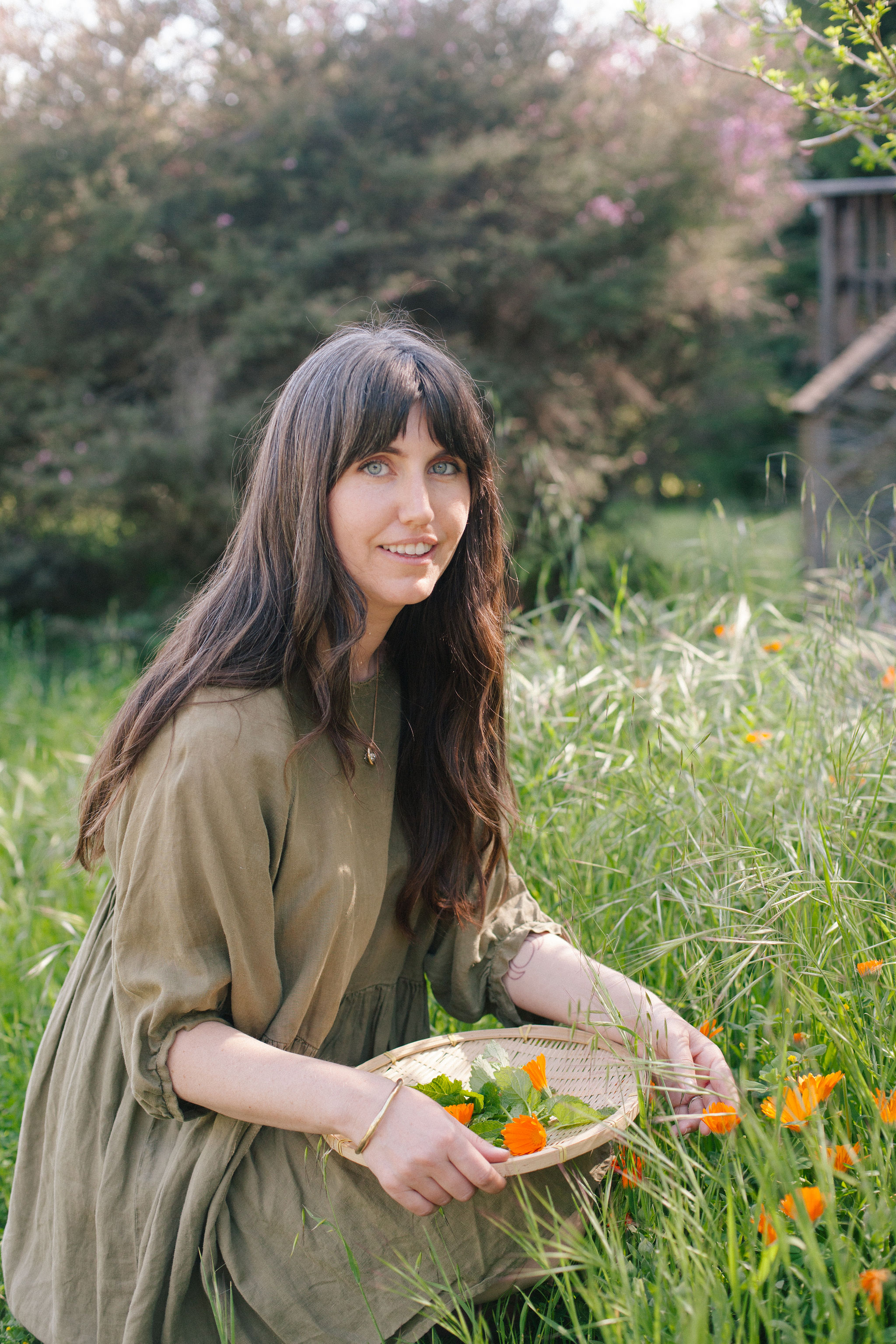
My ancestors on my mother’s side are from Menorca, the smallest Balearic island in Spain. They came to America in the 1700’s to work as indentured servants on indigo plantations in St. Augustine, Florida. Growing up in Florida and starting my herbal journey there, I now realize that I worked with a lot of the same plants my ancestors likely found around them. After visiting Menorca this summer, I was in awe of how many medicinal plants I came across and how connected I felt while being there. Eventually, I’d like to spend intentional time in Menorca studying the plants and learning more about my ancestral ties to this magical island.
How do you incorporate herbalism into your everyday life?
My herbal practice centers around infusing herbs into my daily meals. The foundation of this is making what I like to call herbal preps, which are pantry staples and ingredients infused with nourishing and restorative herbs each season. You can infuse dried, fresh, or powdered herbs and spices right into honey, vinegars, dressings, dips, spice blends, and more. This not only adds a medicinal component but can add even more flavor to simple dishes.
We all have to eat, so why not infuse our foods with beneficial herbs while we’re doing it? Many of us are constantly in flight-or-fight, which can make it more difficult to find balance. Teas, broths, and herbal foods provide an instant comfort, and create rituals that you want to come back to time and time again. Using restorative herbs that are more gentle doesn’t always mean you see immediate effects. That’s why they’re so great in foods, because you get a little dose each day and makes it easier to enjoy your herbs this way.
What are your tips for someone who is just starting?
Start working with herbs and spices that you already have in your kitchen. The great thing about culinary spices is that they’re enzymatic, meaning they help us digest and assimilate our food better. So if you just added more spices to your meals you’re getting benefits!
You can also curate the herbs and spices you use depending on the seasons for even more support. Think about using warming herbs like ginger, cinnamon, thyme, or rosemary in the fall and winter months to help combat the effects of cold weather while supporting the circulatory and immune systems. In the spring and summer, you can focus on working with herbs like cilantro, rose, or lemon balm that have more cleansing and cooling properties to help alleviate stagnation or inflammation that can occur during those times of year.
There’s an old saying in herbalism that essentially says it’s better to really know a handful of herbs well rather than knowing a little about a lot of herbs. Building relationships with herbs that you already have around you whether that's in the kitchen, the garden, or in your environment is much more powerful than seeking out the new “it herb.”
How do you cultivate reciprocity with plants?
Sitting and listening to plants is one of my favorite ways to engage in reciprocal relationships with them. It’s so easy to be in my head about herbalism especially when so much of my work requires me to be online. When I stop and create time to just be in the garden and tune into the plants, I’m always reminded of my deeper connection to the earth and the sacredness of all things. This allows me to hear directly from the plants and know what they’re asking of me.
What is your herbalism philosophy?
The best way to take herbs is the way you’ll actually enjoy taking them.
Any exciting projects you’re working on?
I’m currently finalizing details of my first herbal retreat in Portugal with my friend Grace Yoon this spring. I’m also dreaming up my second herbal cookbook, which I’m really excited about. And hoping to do more in person workshops and retreats which has felt really nourishing lately.
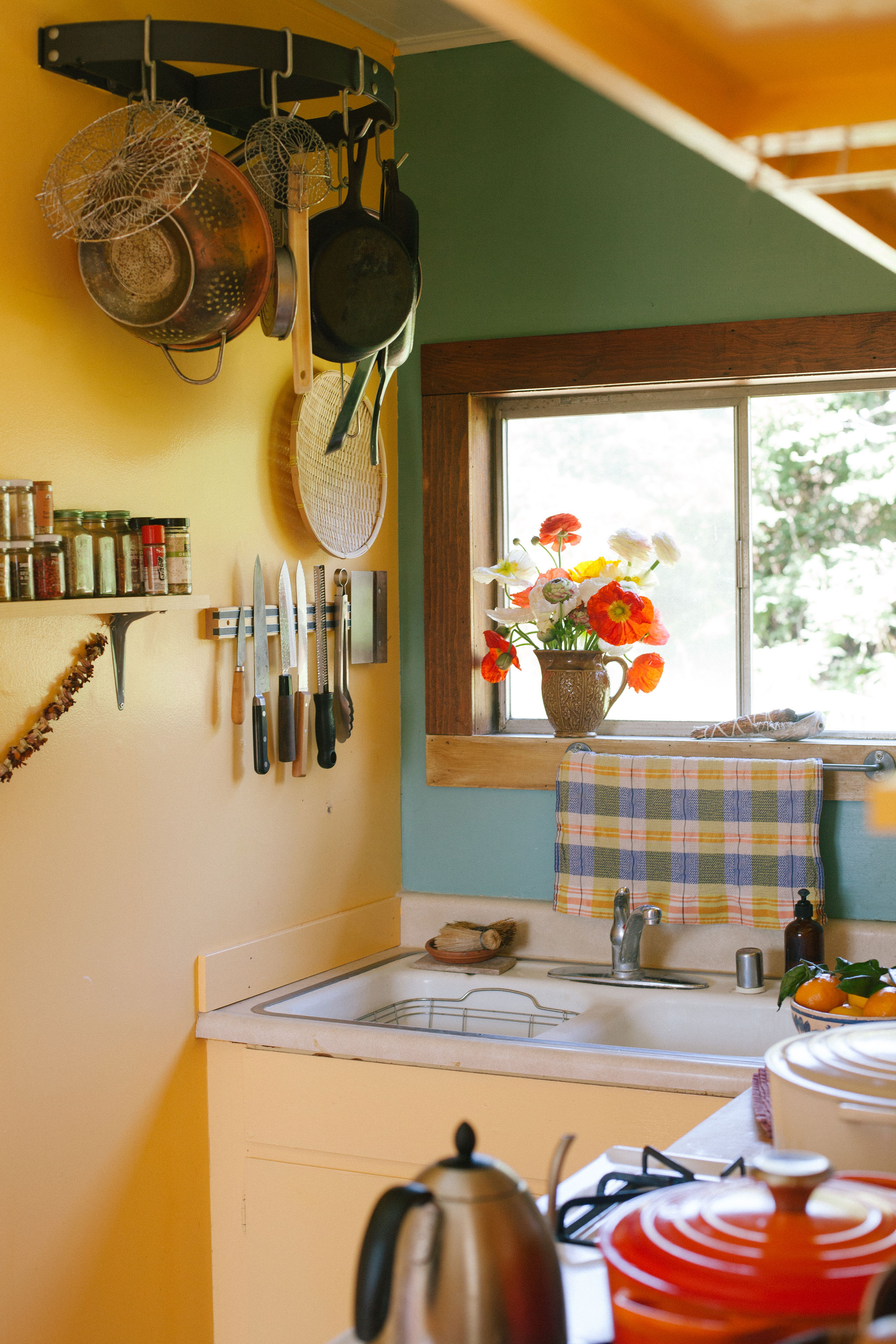
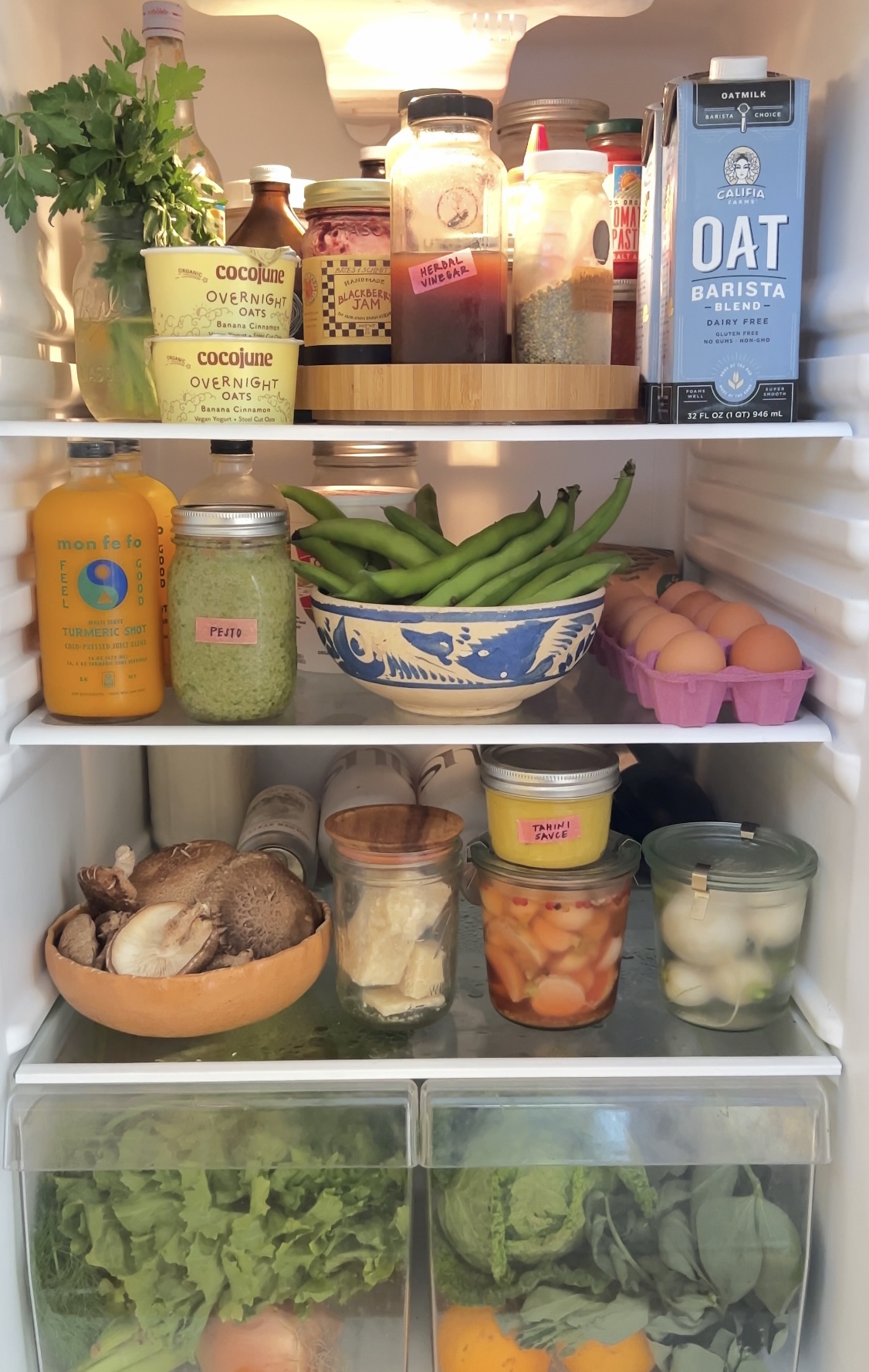
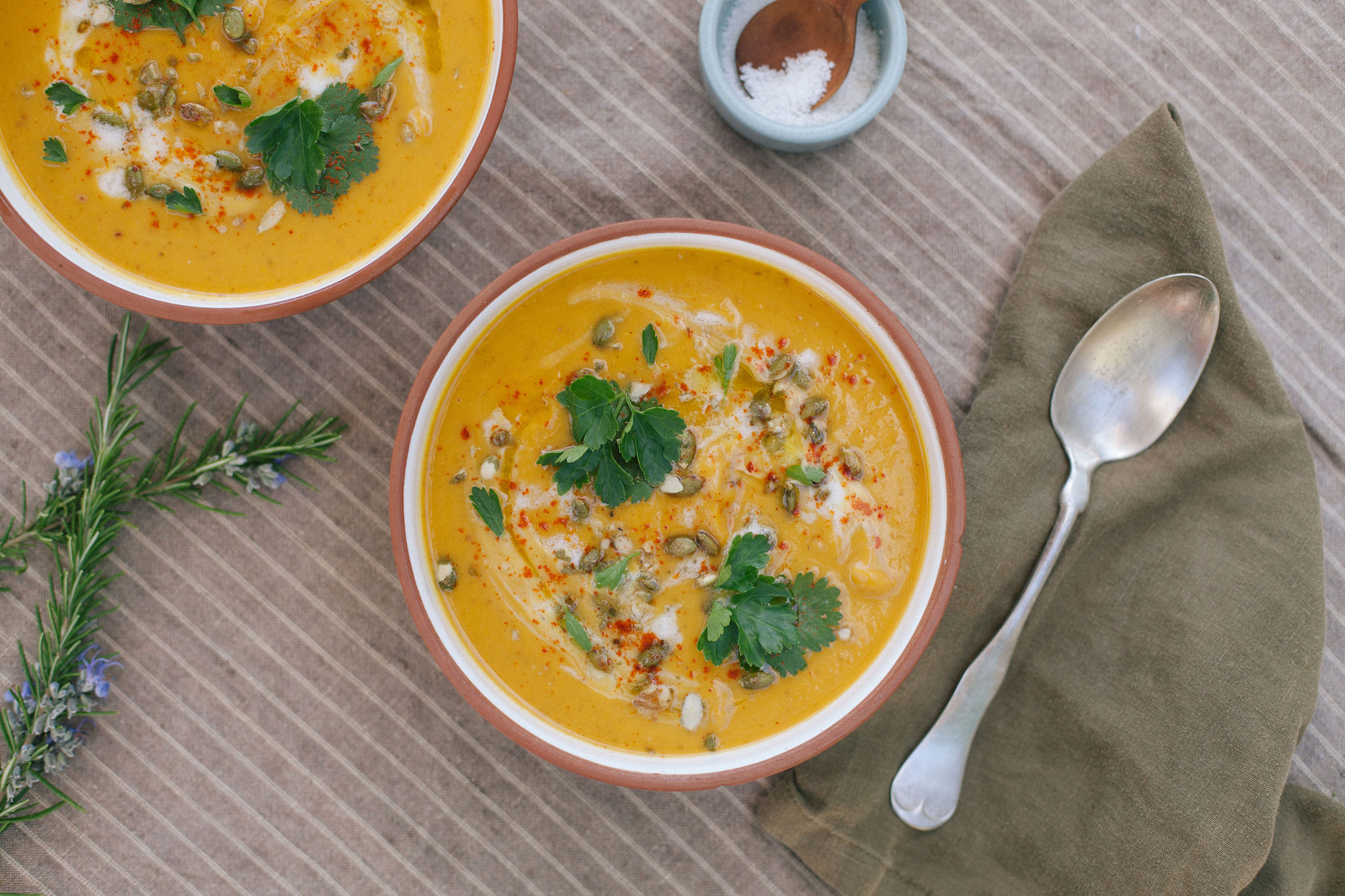
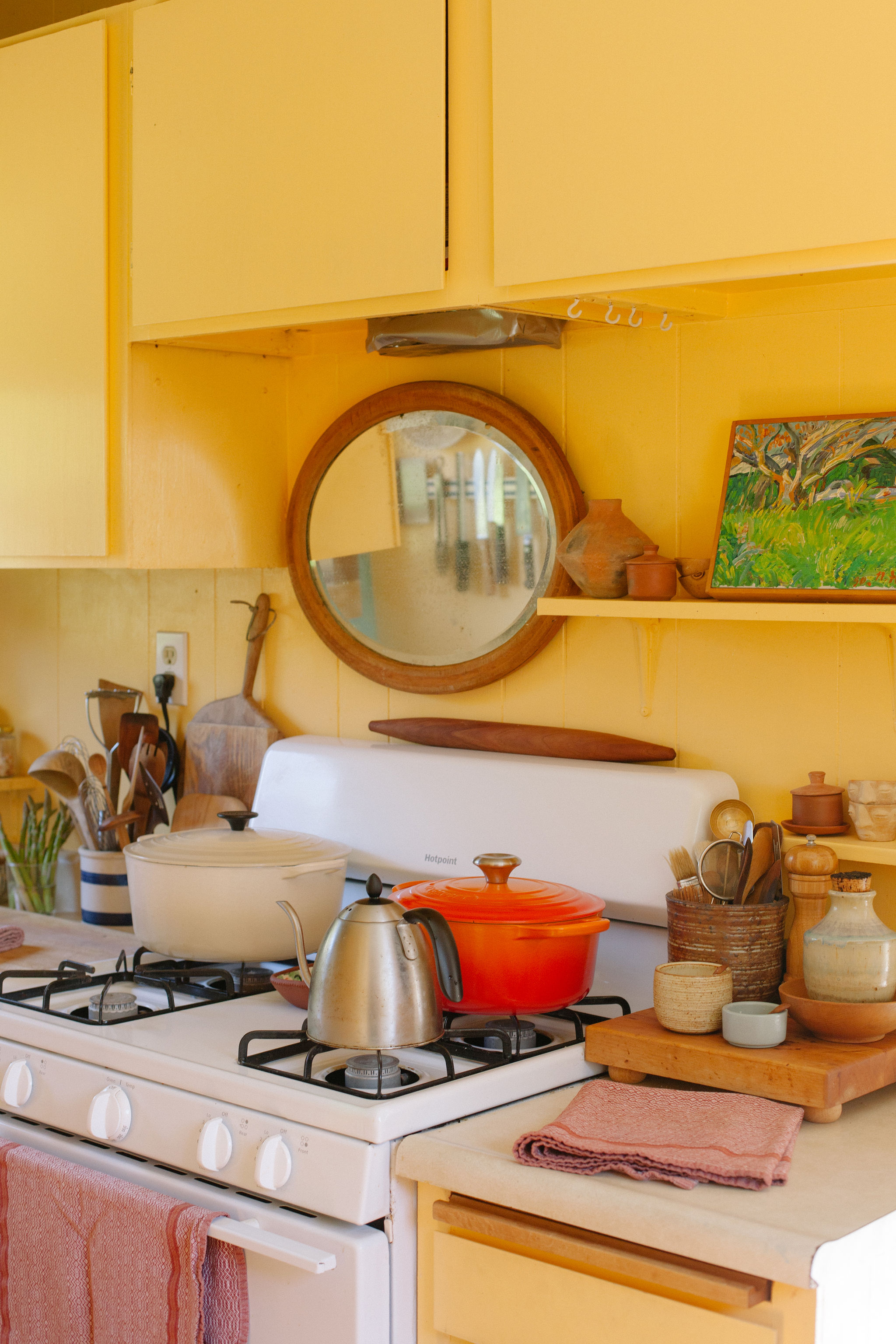


Lightning︎Round
Lightning︎Round
Favorite herb book(s): Anything by Rosemary Gladstar, The Yoga of Herbs by Dr. Vasant Lad and Dr. David Frawley, The Book of Herbal Wisdom by Matthew Wood, A Life of Balance by Maya Thawari, Planetary Herbology by Michael Tierra
Non-herb book(s): Tending the Wild by MK Anderson, Full Moon Feast by Jessica Prentice, Japanese Home Cooking By Sonoko Sakai, Circe by Madeline Miller, and all of Heidi Swanson’s cookbooks
Film: Juliette of the Herbs is a life changing film!
Song: Cactus Tree by Joni Mitchell
Artist: Hilma af Klint
Destination: Menorca, Spain
Tea: Lemon verbena and ginger with a little cream
Herbalists who inspire you: Rosemary Glastar, DeAnna Batdorrf, Juliet de Bairacli Levy, Felicia Cocotzin Ruiz, Kami McBride, Karen M. Rose, and Erin Lovell Verinder
Herbs that are always in your apothecary: lemon verbena, nettle, wood betony, reishi, rose, marshmallow root, ginger, and calendula
